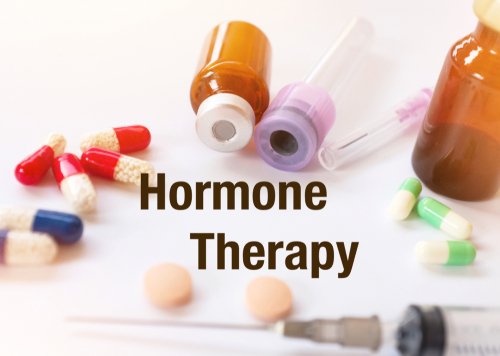Are you struggling with inconsistent or disappointing results from Hormone Replacement Therapy (HRT)? At Thin Solutions RX, we frequently hear these concerns from women who want to feel their best but aren’t sure why they’re not seeing the improvements they expected. Below, we’ll explore common reasons your HRT may seem stalled—and how you can make tweaks for better outcomes.
1. Have You Given HRT Enough Time?
- Patience is Key
Depending on the type of regimen you’re on, HRT can take up to one year before you notice its full benefits. Fluctuating hormones need time to rebalance, so don’t lose hope if you’re only a few months in. - Gradual Changes
Your body requires an adjustment period to adapt to new hormone levels—especially if you’re transitioning through perimenopause or menopause.
2. Check Your Mindset and Lifestyle
- Healthy Lifestyle Choices
HRT isn’t a magic pill. A well-rounded plan that includes proper nutrition, exercise, and stress management maximizes therapy results. Think of HRT as one piece of the puzzle: your daily habits are equally important. - Sleep Matters
Aim for 7-8 hours of quality sleep each night. This is when your body repairs tissue and stabilizes hormones like cortisol and melatonin. - Smoking & Alcohol
- Smoking can reduce estrogen’s ability to protect bones, and continuing smokers may need to switch to a different HRT delivery route.
- Alcohol boosts estrogen levels, which can lead to higher risk factors if you’re also taking supplemental hormones.
3. Gut Health: The Overlooked Factor
- Why It Matters
Studies indicate that poor gut health can increase the risk of estrogen-related conditions, including PCOS, endometriosis, and even breast cancer. An imbalanced microbiome could hamper how your body processes and uses hormones. - Maintenance Tips
Focus on a fiber-rich diet, fermented foods (like kimchi or yogurt), and consider probiotics to support a healthy balance of gut bacteria.
4. Run a Full Thyroid Panel
- Beyond TSH
Your thyroid deeply influences hormone regulation. Ask your provider for a complete panel—TSH, Total T4, Free T4, Total T3, Free T3, Reverse T3, and TPO antibodies. - Hidden Roadblocks
Untreated hypothyroidism or hyperthyroidism can mimic menopause symptoms or interfere with HRT’s effectiveness.
5. Reassess Your Lifestyle in Detail
Sometimes the little things add up. Consider these factors:
- Dosing & Delivery: Are you following exact guidelines on how and when to apply or take your HRT?
- Exercise Balance: Both excessive intense workouts and zero activity can negatively affect hormone balance.
- Protein & Carbs: Aim for about 1g of protein per pound of ideal body weight. Watch carb intake if you’re at risk for insulin resistance, which often accompanies low estrogen levels during menopausal transitions.
- Environmental Toxins: Reduce exposure to harmful chemicals in cleaning products, plastics, or cosmetics whenever possible.
- Stress Levels: Chronic stress floods your body with cortisol, which can disrupt other hormonal pathways.
6. Supplements: The Good, The Bad, and The Critical
- DIM (Diindolylmethane)
Although it supports healthier estrogen metabolism, DIM may lower overall estrogen. If you’re on HRT, adding DIM might reduce your therapy’s effectiveness. Talk to your provider first. - Liver Detox Support
Supplements that speed up liver detox may cause you to excrete estrogen too rapidly, diminishing HRT benefits. - Vitamin D
Technically a hormone, Vitamin D is crucial for bone health and immune function. Many women lack adequate levels due to diet and lifestyle. - Vitamin C & B Vitamins
Vitamin C impacts the HPA axis (your body’s stress response system), and B vitamins (especially B12 and folate) play roles in energy and hormone regulation. - Magnesium
Essential for hundreds of biochemical reactions, including those linked to hormone balance.
7. Recognize That HRT May Need to Evolve
Your body changes with age. What worked in your late 30’s, 40’s, and 50’s might not suit your needs at 60. You may need to:
- Adjust Dosage
Raise or lower your dose based on your latest lab tests and symptoms. - Try a Different Delivery Method
We are all unique, and HRT is not a one size fits all approach.
8. Expect Continuous Monitoring and Tweaking
Remember, while HRT can be transformative, it can’t fully replicate the complex hormonal landscape your ovaries provided pre-menopause. It’s normal to need regular monitoring and dose adjustments to stay on track. Close collaboration with a skilled clinician ensures you fine-tune your therapy over time.
How Thin Solutions RX Can Help
At Thin Solutions RX, we take a holistic approach to hormone health. Our personalized plans:
- Evaluate Your Entire Hormone Profile
We assess thyroid markers, sex hormones, cortisol, and vitamin levels. - Integrate Lifestyle Modifications
Nutrition, exercise, stress management, and sleep hygiene are part of our standard protocols. - Offer Customized HRT Solutions
We understand that each woman’s body is unique. We tailor hormone dosages, delivery methods, and supplement recommendations to your specific needs. - Continuous Follow-Up
Regular check-ins help ensure your HRT remains aligned with your current phase of life, mitigating any new challenges that arise.
Ready to Optimize Your HRT Journey?
If you suspect your hormone replacement therapy isn’t working as well as it should—or you just want a second opinion—Thin Solutions RX can help you explore potential hurdles like gut health, thyroid function, or lifestyle factors. We’ll partner with you to optimize your therapy and guide you toward balanced hormones and a healthier, more vibrant life.
Disclaimer: This content is for informational purposes only and should not replace professional medical advice. Always consult with a healthcare provider for personalized guidance on hormone therapy.

